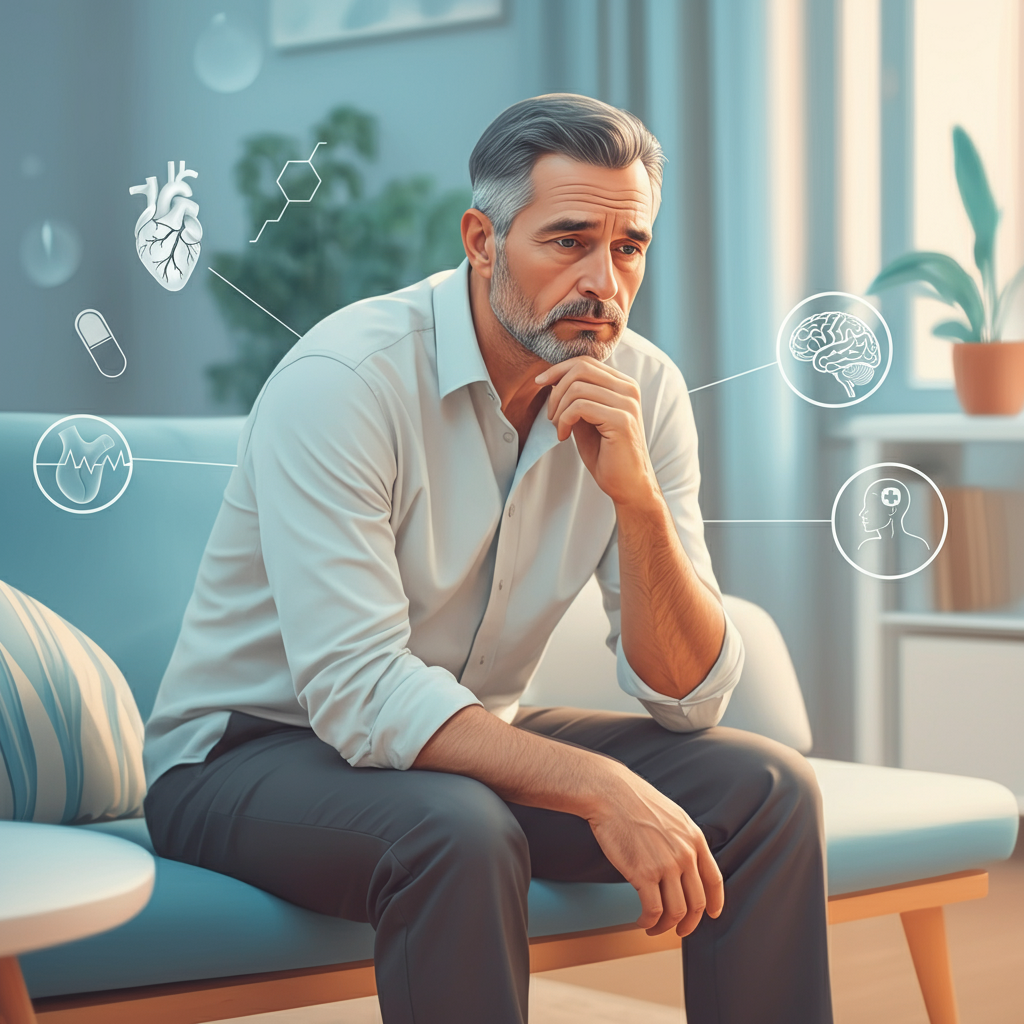When we think of depression, our minds usually imagine someone who is clearly depressed, often crying and struggling to get up. While these are all common experiences for people but depression isn’t always an obvious mask. Some of the most typical symptoms are in the background, nebulous, and can be dismissed as being something else altogether. These subtle symptoms of depression can be difficult to identify, as well as those we care about.

Recognizing these subtle signs is the first step to increasing awareness of mental health. It lets us see beyond the stigmas and understand the condition as it really is: a complicated illness that can have a range of consequences. This article will look at the subtle signs of depression that we often ignore. Through providing a clearer picture of these issues, we will be better prepared to offer help and seek help when required the most.
The Sneaky Thief of Joy: A Loss of Interest
The most important yet under-appreciated depression sign is anhedonia, or the feeling of not being able to feel joy. The issue isn’t that you’re sad; instead, it’s about experiencing like nothing at all. Activities that used to bring excitement and a sense of fulfillment, gratifying friendships, and even your favorite food may suddenly become boring and boring.

For instance, a person who was once a fan of painting might notice their canvases collecting dust. The idea of getting the brush that once was a source of inspiration now feels like an obligation. A person who was a weekend hiker may begin to make excuses for staying at home, not to be unhappy, but because the trail is no longer calling to them. The joy has just gone away.
This particular problem is difficult because it’s simple to explain away. It could be due to a hectic schedule, stress at work, or “growing out of” certain activities. Family and friends might not be aware of it immediately if the person is simply busy. But this gradual evaporation from pleasures in life is a signal. It’s a gradual emptying of one’s life, which leaves the person feeling empty and disengaged. Thus, understanding the shift from active involvement to passive indifference is crucial to identifying symptoms of depression that are not obvious.
Physical Pains and Unexplained Ailments
Are you aware that depression can cause physical harm? It’s an interesting fact for a lot of people, but the connection between mental health and physical health is very robust. Unfortunate, persistent physical pains and discomforts are typically unnoticed signs of depression and are often misdiagnosed or ignored.
Imagine back pain that doesn’t ease with physical therapy, or the constant headaches that pain relief medications aren’t able to fix. The digestive issues, such as gastric cramps, bloating, and stomach upsets, are also regular physical manifestations. They’re not only “in your head”; depression can actually create or increase physical discomfort. Brain chemicals responsible for mood regulation, including serotonin and norepinephrine, are involved in the way we experience the sensation of pain. If these chemicals are not in balance in the body, pain signals are amplified.

Since the signs are known as physical symptoms, individuals frequently seek assistance from doctors or specialists and undergo a variety of tests that result in a non-conclusive diagnosis. They could be spending months or years searching for a physical cause, but never consider the possibility that their mental health might be the cause of the issue. If your loved ones or you suffer from persistent physical issues that do not have a clear medical reason, it could be time to think about the possibility of depression as a root cause. A holistic perspective is an essential aspect in gaining awareness of your mental well-being.
The Irritable Outburst: More Than Just a Bad Mood
While sadness is one of the emotions that is most often associated with depression, another significant and often ignored indicator is the feeling of irritability. This isn’t just somewhat grumpy; it’s an ongoing, low-level anger or a flash of light that has no specific cause. Someone who is suffering from this condition may be angry with loved ones on minor matters, be always annoyed by minor issues, or have an anger that simmers beneath the surface.
This condition is most frequent in males, but it can be experienced by everyone. It’s usually interpreted as a character trait, “Oh, you’re just a hothead,” or as a response to stress externally. People may not recognize their anger as an indication of depression. In reality, they may think that the world is becoming a dismal place and that everyone else is either incompetent or irritable.

Additionally, this continuous state of turmoil can be extremely lonely. It makes people withdraw during a time when interaction is the most important. Friends and family members may begin to get nervous in fear of sparking an angry outburst. This can cause a sense of distance and confusion, and increase the feeling of isolation. Recognizing that a sudden or unusual increase in irritation could be one of the symptoms of depression that are hidden is essential for closing the gap and beginning an honest discussion about what’s happening.
Depression is a multifaceted illness that manifests differently for every person. By stepping away from the traditional noticeable symptoms and establishing an understanding and supportive community. The loss of pleasure in the quiet and the unanswered physical pain, and perpetual irritability are some of the subtle symptoms of depression that warrant our paying attention to.

If these symptoms appeal to you or if you observe these signs in someone you love, it’s fine to seek assistance. A consultation with an expert in mental health will provide clarity and direct you to the most effective treatment options. Knowing the hidden issues can be the initial step to recovery, connection, and living a life with purpose and happiness.



